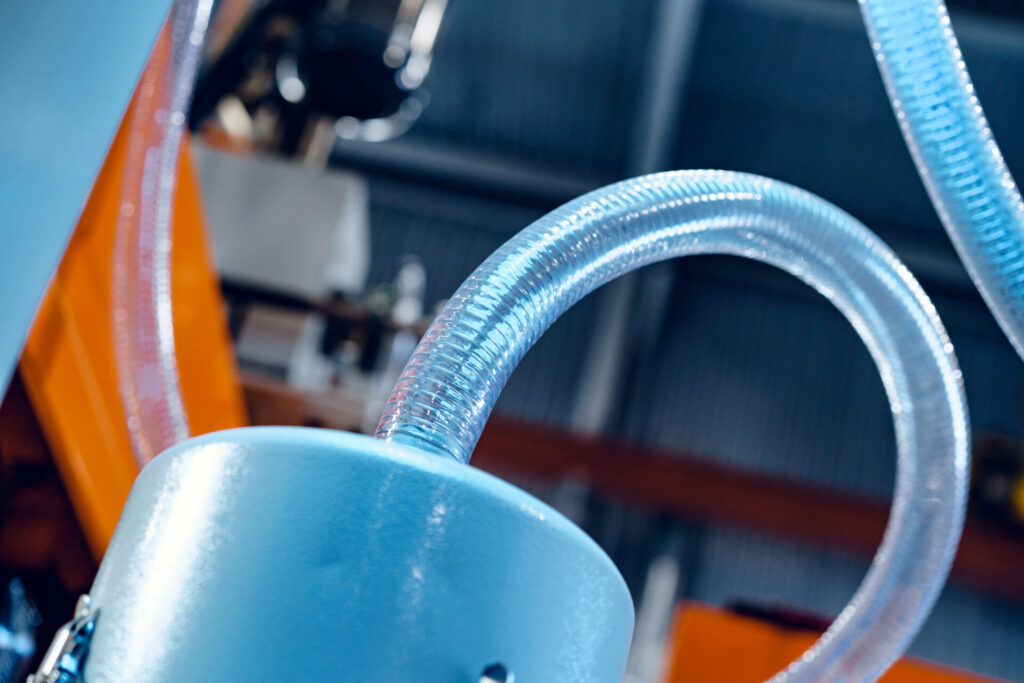Extrusion is a process where molten plastic is forced through a mold to create long, continuous products such as pipes, profiles and strips. This method is suitable for mass production of plastic components with both simple and complex shapes and the method offers high efficiency and cost-effectiveness. By using extrusion, companies can manufacture large volumes of products with minimal material waste while achieving high precision in shape and size. Read more about extrusion here.
How does plastic extrusion work?
The process begins with plastic material in the form of pellets or granules being fed into a heated cylinder. Inside the cylinder, the plastic is melted as it is moved forward by a rotating screw. Once the plastic has melted and become liquid, it is forced through a mold, or “die,” which produces the desired profile. After the plastic has been forced through the mold, it is quickly cooled to maintain its shape and rigidity. The product is then cut to the desired length and is ready for further processing or use.
Extrusion is a highly flexible technology that can be adapted to create products in different materials and with varying dimensions. The process enables the production of everything from small, detailed components to large structural parts, making it useful in a variety of industries.
Advantages of extrusion
- Cost-effective production: Extrusion is suitable for mass production and reduces the unit cost of each component. The continuous production process also minimizes the need for manual handling and monitoring, leading to lower labor costs.
- Versatility in design: By changing the mold die, different products can be manufactured without having to adjust the entire production line. This makes it easy to adapt production to new or changing design requirements.
- High efficiency: The process is fast and ideal for large volumes of products. At the same time, material use is optimized, minimizing waste and contributing to sustainable production.
- Consistent quality: Extrusion provides even and consistent product quality across the entire production volume, which is important for applications that require precise tolerances and reliable performance.
Applications for extruded plastic products
Extrusion is used in many different industries and applications. In the construction industry, pipes, cable ducts and facade profiles are manufactured using this technology. In the automotive industry, extrusion is used to create seals and moldings that require high durability and flexibility. The technology is also common in furniture manufacturing, where plastic profiles are used for frameworks and decorative elements. In addition, extrusion is used to manufacture packaging materials, where thin plastic films are created to protect products during transport and storage.
Extrusion services at MK Plastteknik
At MK Plastteknik we have extensive experience in extrusion and offer tailor-made solutions for our customers. Whether you need pipes, profiles or other plastic components, we can help you develop the optimal solution for your needs. We use modern equipment and high-quality materials to ensure that each product meets high standards of quality, durability and precision. Read more about our extrusion services here.
Extrusion is an efficient and reliable method for producing plastic products with high precision and in large volumes. By choosing the right materials and production settings, you can optimize the manufacturing process and reduce both costs and environmental impact. Contact us at MK Plastteknik to discuss how we can help you with your next production solution within extrusion.
